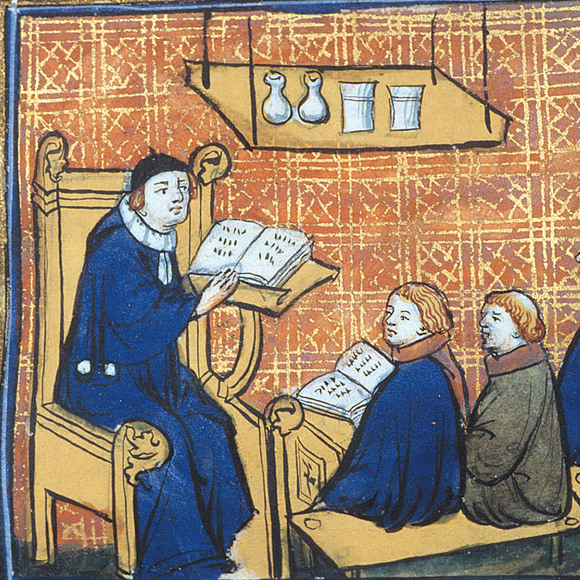What is the secret of the success of Donald Trump and Brexit: are they linked, and if so how? Forget “populism” for a moment, and ask what is really happening. In searching for an answer, let us first indulge in a little thought experiment. Take a standard pack of cards, shiny, clean and new, with each card arranged in descending order, suit by suit, aces high. So ace, king, queen etc of hearts, are followed by ace king queen of spades, etc; and right at the bottom, is the poor old two of clubs, sheepishly hiding behind the three.
Then shuffle them thoroughly. Those familiar with the Second Law of Thermodynamics will recognise that what we have done is to increase the entropy by turning an ordered pack, arranged tidily in suits and sequences, into a disordered one, arranged randomly (or disarranged, if you prefer).
And now rearrange them back in order of value, this time the four aces, kings, queens etc, and twos and threes at the bottom, clustered together rather than in separate suits. (Elites tend to congregate together). And what we have created is a perfect metaphor for meritocracy, the highest value at the front, the lowest coming last. How do we think our two of clubs feels about this? Angry, I guess. Angry not just because he misses out all the privileges of higher status, but because there is told there nothing on earth the can do about it, that meritocracy is the natural order of things.
The cards are, so to speak, stacked against him, and he knows it. But guess what? The deep sense of grievance and resentment he feels towards those at the top of the pack eventually translates itself into rebellion. He turns on those elites, and given the chance, votes against them, wants them expelled from power. He despises them for humiliating him, treating him as a lower order, and they despise him for refusing to accept that they are the entitled ones, the top cards in the pack. They may even call him and his mates a “basket of deplorables”. He doesn't really understand the term, but knows he is being insulted. It is characteristic of elites that they talk down to their inferiors, using a more varied vocabulary and more complex syntax. This is the sound world of Trump's inarticulacy and Brexit's three word slogans. But one is no less human for having difficulty expressing oneself.
Meritocracy advocates the distribution of power, wealth and responsibility according to merit. Few societies have ever achieved this perfectly, but most of them hold it out as an ideal. It says the aces, kings and queens at the top are entitled to their high status because they deserve it: they are, in the Great Competition called life, the winners. It seems so absolutely fair that very few voices are ever raised to question its underlying assumptions. It is “equality” by another name (though of course it is profoundly unequal).
Cronyism, nepotism, jobs for the boys, even aristocracy itself, all seem to contradict the meritocratic principle, which is that life is like a grand track race where the whole of humanity is lined up simultaneously at the starting post, and the first few over the finishing line are obviously the fastest and best. And they truly deserve the prize, on their merits – there is no metaphorical handicapping system, as in horse racing.
As the model for a perfectly fair society there are three fundamental problems with this. The first is that, unlike in a sporting event, there is no agreed definition of merit. The background assumption is an almost Darwinian “survival of the fittest” – though it wasn't Darwin who invented the phrase. Those qualities which carry you to the top are those qualities which society values most. But this is tautological process, as those at the top are also the leaders of that society and the shapers of its values. From a Catholic point of view those values are Pelagian – the “self-made man who worships his creator”. They are certainly not the values Christ preached in the Beatitudes – if anything, the opposite.
All the analysis of the success of Donald Trump in America and of Brexit in Britain makes similar points. Those who vote for them are on average less well educated and less well paid. They are the lower cards in our sorted pack. All they understand of the theory of meritocracy is that it deems them less worthy of respect, by those at the top. So this is a revolt against the elites.
And the second thing they sense about the theory is that it is basically static, or meant to be. Once each individual is allotted his place according to his “merits”, he is stuck in it for ever. He may move around a bit – a two could become a four, say. But the “Great American Dream” of moving from the bottom to the top in one generation, is just that, an illusion or fantasy. So this is the second fundamental problem with meritocracy. The more perfect the hierarchy of merit, the worse it treats those with less merit or even without merit at all, according to its own self-fulfilling values and standards. The much vaunted “equality of opportunity” is actually the sorting method at the heart of a meritocracy. It adjusts the pecking order, but the pecking order is still in place.
The third problem with meritocracy is the inequality it creates and condones. “All men are equal” becomes “but some are more equal than others”. A philosophical system based on the infinite (and therefore equal) value of every human person sees merit only in being human, and merit evenly distributed. There is no better and worse in such a system. The cobbler at his last is no better or worse than the banker in his counting house or lawyer at the bar. As human beings, doctors are no better than nurses who are no better than porters.
He may be a good cobbler or a bad one, and obviously good is to be preferred to bad. One wishes to be spared treatment by incompetent dentists, so in that sense not all dentists are equal. But meritocracy drives a coach and horse through the concept of vocation: that we are called to our trade or profession, and that becomes part of who we are.
Work is cooperation with the Creator, to finish the parts of it that were left to humanity to complete. So all trades are equal in the sight of God. Who is to say that a window cleaner is less necessary than a car mechanic? Meritocracy loses sight of the dignity of work, of labour, because it classifies one form of work as better than another. The Benedictines understood this, with their “ora et labora” or better still, “to work is to pray”.
Michael Sandel, the Harvard philosopher and former BBC Reith Lecturer, who is interviewed in The Tablet this week, has a book out later this month titled The Tyranny of Merit – what's become of the common good which discusses these themes in more depth. The term “meritocracy” was first used by the British sociologist Michael Young. In 1958, Young wrote the influential satire The Rise of the Meritocracy, originally for the Fabian Society which declined to publish it. That tells you something about left-wing elites, though it was the right which saw his ideas as a useful complement to free market capitalism.
He meant it as a warning. Isn't it time we heeded it?



 Loading ...
Loading ...
What do you think?
You can post as a subscriber user ...
User comments (0)